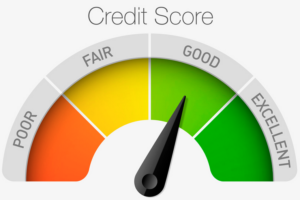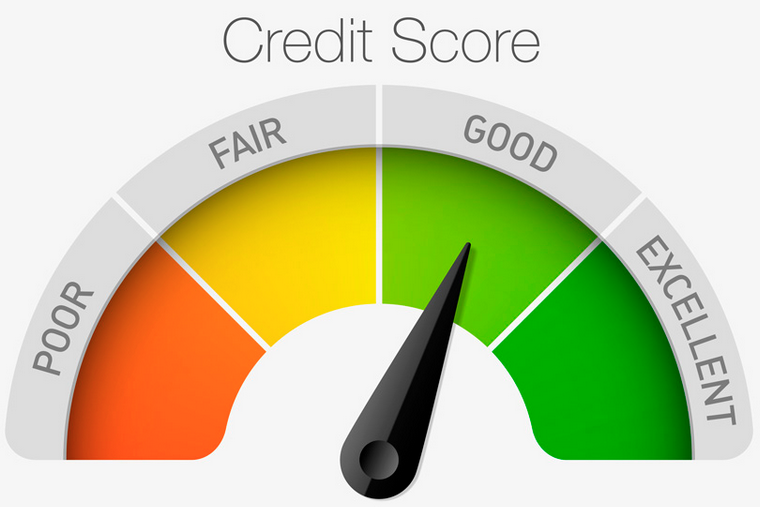An individual’s CIBIL score is one of the first things that lenders look at when evaluating a personal loan application. This information helps the banks and lending institutions to assess the creditworthiness and repayment ability of a borrower before approving any loan applications. Once a loan application is submitted to the lender, the lender checks for a good cibil score and credit report of the applicant. It works as a kind of the first impression for the lender.
In case the credit score is low, the lender might reject the application without considering it further. If the credit score is high, the lender might look into other details to determine if the applicant is creditworthy. With the global pandemic situation, many people’s financial lives have turned upside down. As you work on managing your finances, paying your bills and your finances going strong, you should also pay attention on maintaining a good cibil score.
-
Keep track of your CIBIL Score.
 You need to keep checking your CIBIL Report and watch out for any inaccuracies in it. Sometimes these reports contain incorrectly stated open accounts that may increase your credit exposure. Check your credit report and score once in 6 months to ensure that such errors do not occur and your credit report is updated. Hence, it is necessary to take immediate measures to report the fraud or crime with your banking partners, so it doesn’t affect your CIBIL ratings. It’s a good habit to check with your score and credit report, so you are well aware of your score analysis, credit history, and trends.
You need to keep checking your CIBIL Report and watch out for any inaccuracies in it. Sometimes these reports contain incorrectly stated open accounts that may increase your credit exposure. Check your credit report and score once in 6 months to ensure that such errors do not occur and your credit report is updated. Hence, it is necessary to take immediate measures to report the fraud or crime with your banking partners, so it doesn’t affect your CIBIL ratings. It’s a good habit to check with your score and credit report, so you are well aware of your score analysis, credit history, and trends.
-
Keep Your identity Protected.
 Securing your personal information and identity plays a crucial part in protecting your credit score. Identifying theft and scams are rampant during the pandemic. Your data can get access to different financial resources, and hackers can utilize all your personal information to impersonate you and open confidential information of credit card accounts, make purchases, transfer funds. Such activities are left undetected; this activity can significantly damage your credit score.
Securing your personal information and identity plays a crucial part in protecting your credit score. Identifying theft and scams are rampant during the pandemic. Your data can get access to different financial resources, and hackers can utilize all your personal information to impersonate you and open confidential information of credit card accounts, make purchases, transfer funds. Such activities are left undetected; this activity can significantly damage your credit score.
-
Make sure you pay your bills on time.
 Timely payments of credit card bills and loans will significantly improve your credit score. On the other hand, a payment default will drag the Score down. So, start making your payments in time, and you’ll begin to see improvements in your Score. Also, make it a habit to at least make minimum payment towards your EMIs each month. Doing so will help you maintain a good payment history record and prevent you from paying late fees.
Timely payments of credit card bills and loans will significantly improve your credit score. On the other hand, a payment default will drag the Score down. So, start making your payments in time, and you’ll begin to see improvements in your Score. Also, make it a habit to at least make minimum payment towards your EMIs each month. Doing so will help you maintain a good payment history record and prevent you from paying late fees.
4. Make Budgeting and Planning a Habit
 The habit of budgeting will go a long way, especially during this crisis, planning your finances are essential for keeping your credit card debt low and your credit score high. Keep a track on how much money you make and the money you spend. Identify the expenses where you can cut the usual costs, at least temporarily. List out all the costs for the month and cross off the ones that are not so important. Make your electricity, phone bills, taxes and groceries the top priority and save the rest of the money for emergencies.
The habit of budgeting will go a long way, especially during this crisis, planning your finances are essential for keeping your credit card debt low and your credit score high. Keep a track on how much money you make and the money you spend. Identify the expenses where you can cut the usual costs, at least temporarily. List out all the costs for the month and cross off the ones that are not so important. Make your electricity, phone bills, taxes and groceries the top priority and save the rest of the money for emergencies.
-
Opt for a moratorium
 If you are unable to make the payment towards your EMIs and other obligations, you can opt for the moratorium. This can at least save you from a drop in credit score when you don’t pay your EMI. Also, while opting for a moratorium, it is good to apply for a moratorium on loans that have a lower rate of interest, so that the interest burden in future is lessened. It is best to decide to avail a moratorium after considering all pros and cons.
If you are unable to make the payment towards your EMIs and other obligations, you can opt for the moratorium. This can at least save you from a drop in credit score when you don’t pay your EMI. Also, while opting for a moratorium, it is good to apply for a moratorium on loans that have a lower rate of interest, so that the interest burden in future is lessened. It is best to decide to avail a moratorium after considering all pros and cons.
If you require financial assistance you can apply for a Bajaj finance personal loan, where you can get a personal loan of up to Rs 25 lakhs. The personal loan repayment tenure is quite flexible and usually ranges from 1 to 5 years making it easier to repay the loan. While your credit score is essential in the long-term, during the pandemic, you must first cover your necessities. To find relief, it’s necessary to reach out to your lender and ask for a payment plan that works for you. If you still require assistance to manage your finances, you can consult a financial advisor to help you manage your money wisely.




